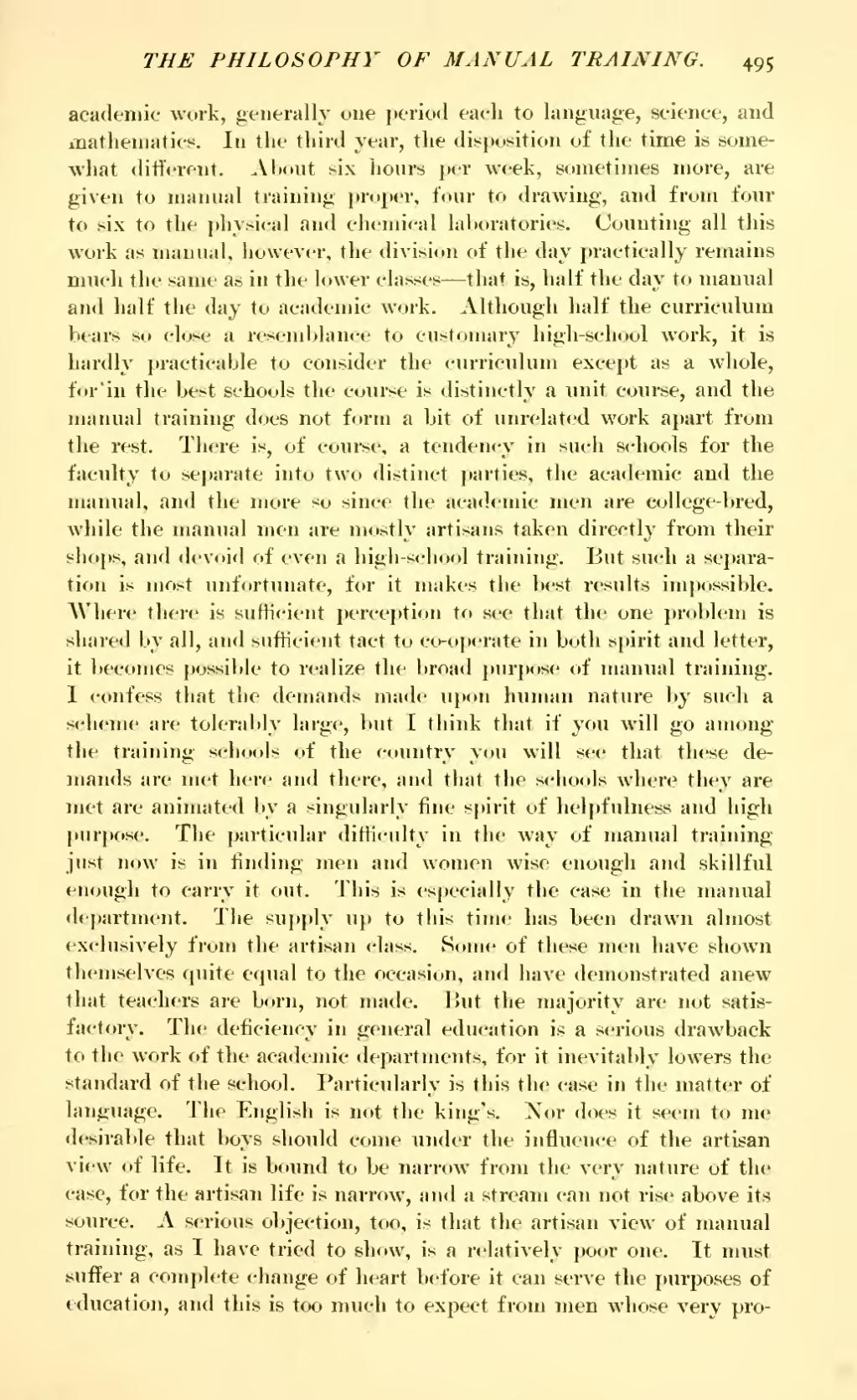academic work, generally one period each to language, science, and mathematics. In the third year, the disposition of the time is somewhat different. About six hours per week, sometimes more, are given to manual training proper, four to drawing, and from four to six to the physical and chemical laboratories. Counting all this work as manual, however, the division of the day practically remains much the same as in the lower classes—that is, half the day to manual and half the day to academic work. Although half the curriculum bears so close a resemblance to customary high-school work, it is hardly practicable to consider the curriculum except as a whole, for in the best schools the course is distinctly a unit course, and the manual training does not form a bit of unrelated work apart from the rest. There is, of course, a tendency in such schools for the faculty to separate into two distinct parties, the academic and the manual, and the more so since the academic men are college-bred, while the manual men are mostly artisans taken directly from their shops, and devoid of even a high-school training. But such a separation is most unfortunate, for it makes the best results impossible. Where there is sufficient perception to see that the one problem is shared by all, and sufficient tact to co-operate in both spirit and letter, it becomes possible to realize the broad purpose of manual training. I confess that the demands made upon human nature by such a scheme are tolerably large, but I think that if you will go among the training schools of the country you will see that these demands are met here and there, and that the schools where they are met are animated by a singularly fine spirit of helpfulness and high purpose. The particular difficulty in the way of manual training just now is in finding men and women wise enough and skillful enough to carry it out. This is especially the case in the manual department. The supply up to this time has been drawn almost exclusively from the artisan class. Some of these men have shown themselves quite equal to the occasion, and have demonstrated anew that teachers are born, not made. But the majority are not satisfactory. The deficiency in general education is a serious drawback to the work of the academic departments, for it inevitably lowers the standard of the school. Particularly is this the case in the matter of language. The English is not the king's. Nor does it seem to me desirable that boys should come under the influence of the artisan view of life. It is bound to be narrow from the very nature of the case, for the artisan life is narrow, and a stream can not rise above its source. A serious objection, too, is that the artisan view of manual training, as I have tried to show, is a relatively poor one. It must suffer a complete change of heart before it can serve the purposes of education, and this is too much to expect from men whose very pro-
Page:Popular Science Monthly Volume 53.djvu/513
Appearance

